Accelerate CI/CD
Repository and Artifact Caching
Deliver artifacts and containers at scale with less infrastructure pressure.
Varnish Enterprise integrates into your CI/CD toolchain to cache and serve dependencies at high speed, reducing origin traffic, cutting cloud costs, and increasing pipeline reliability.
Faster Builds, Smarter Caching
DevOps Acceleration Starts with the Right Cache Layer
DevOps teams rely on efficient access to shared components and containers, but build pipelines and deployments are affected by:
- Redundant dependency downloads
- Network latency and high egress fees
- Repository bottlenecks during CI/CD surges
- Slow data access
- Scaling limitations
Varnish caches artifacts and containers close to your teams, eliminating latency, reducing database load, and keeping pipelines fast and responsive.
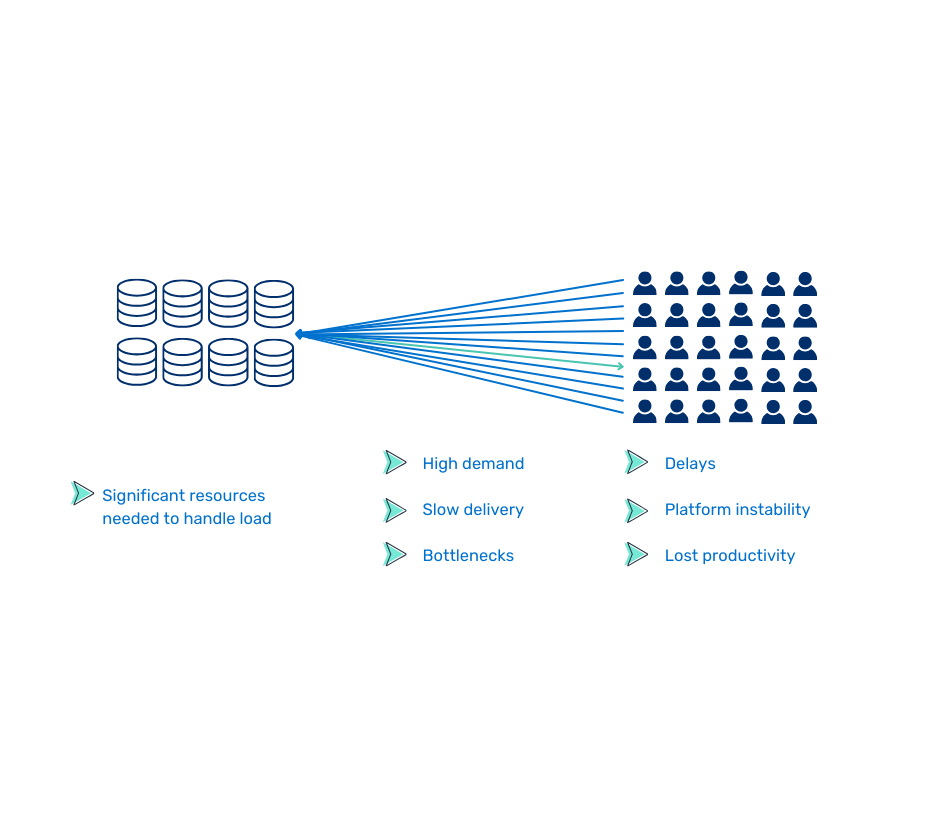
Caching Built for Real DevOps Workflows
What Varnish Enterprise Does
Varnish Enterprise integrates directly into your software delivery path, between developers, CI/CD tools, and your artifact repositories, storing and re-serving dependencies, packages, containers, and more.
- Cache and serve artifacts, containers, and packages at high speed.
- Compatible with tools like JFrog Artifactory, Sonatype Nexus, Maven, Gradle, pip, npm, Docker, GitHub
- Deployable in the cloud, on-premise, edge or hybrid environments.
- Comprehensive, programmable delivery architecture includes security, load balancing and observability tooling.
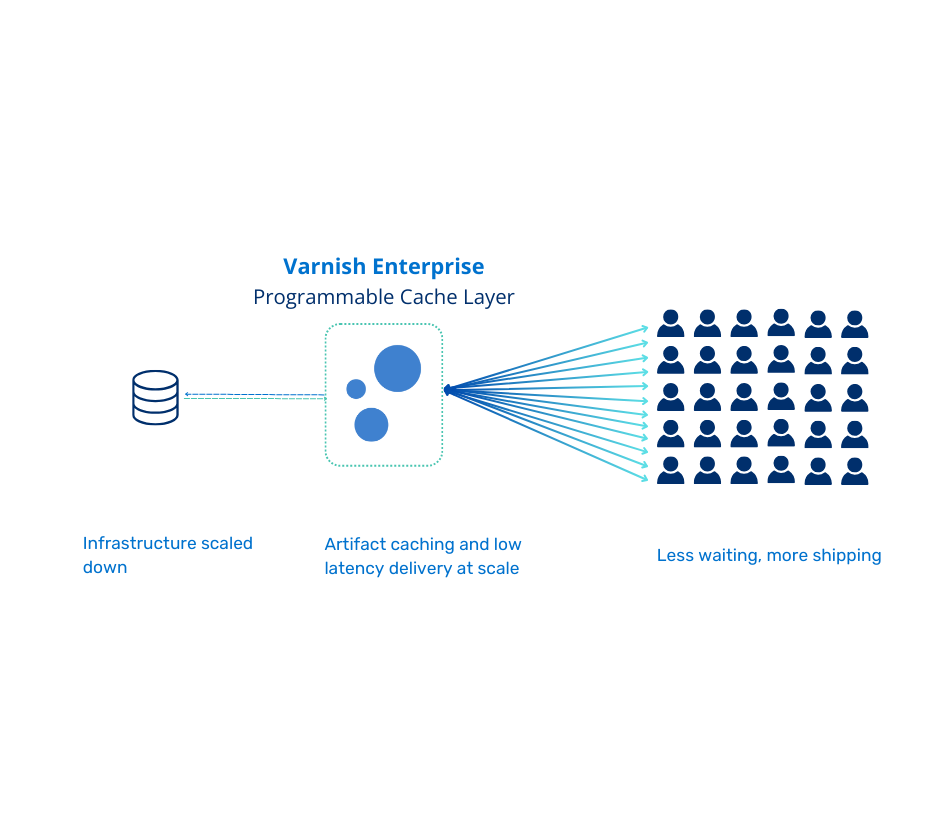
Accelerate Delivery. Optimize Resources. Maximize Uptime.
Varnish Enterprise empowers engineering teams to speed up development, streamline infrastructure, and scale reliably — all while cutting costs.
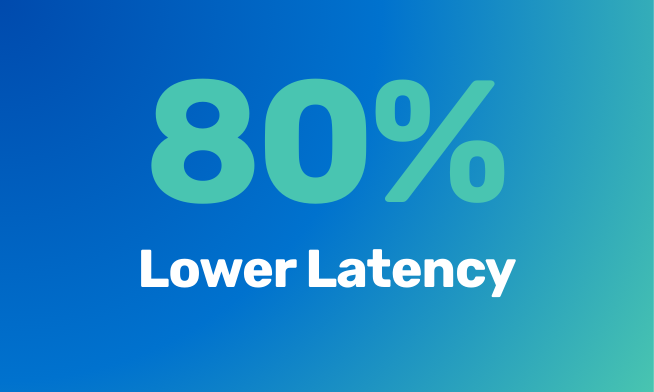
Acceleration
Remove artifact and repository bottlenecks
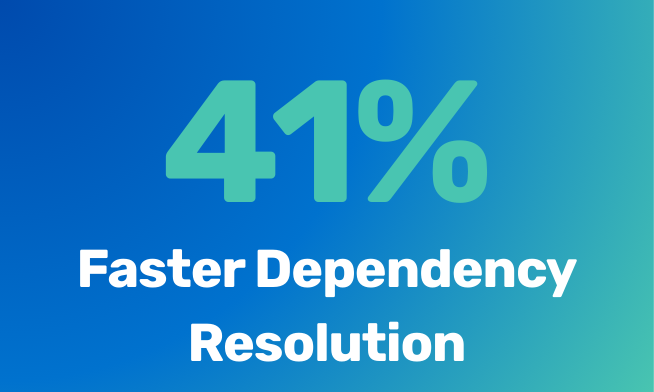
Efficiency
Reduce dependency resolution time by 40% or more
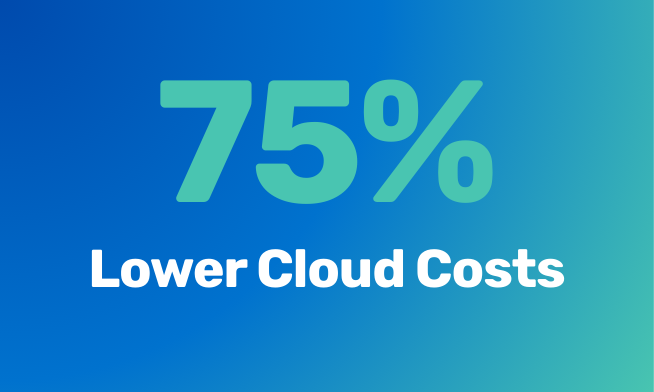
Optimization
Cut infrastructure and cloud costs by serving repeated traffic from cache

Resilience
Handle load with fewer servers and greater uptime.
Deployed Inline, Integrated Everywhere
How It Works in Your Toolchain
Varnish sits transparently between developers, CI/CD systems, and artifact or container repositories. When a request for an artifact, package, dependency or container layer is made, Varnish evaluates whether the object is already cached locally.
If the object is cached, Varnish serves it directly from local storage, dramatically reducing retrieval latency, and improving pipeline responsiveness. If the object is not cached, Varnish fetches it from the origin and stores it locally, ensuring subsequent requests are served instantly from cache.
Use Varnish to:
-
Accelerate dependency resolution and image pulls
-
Reduce load on artifact servers
-
Eliminate redundant transfers
-
Support globally distributed teams with low-latency local access
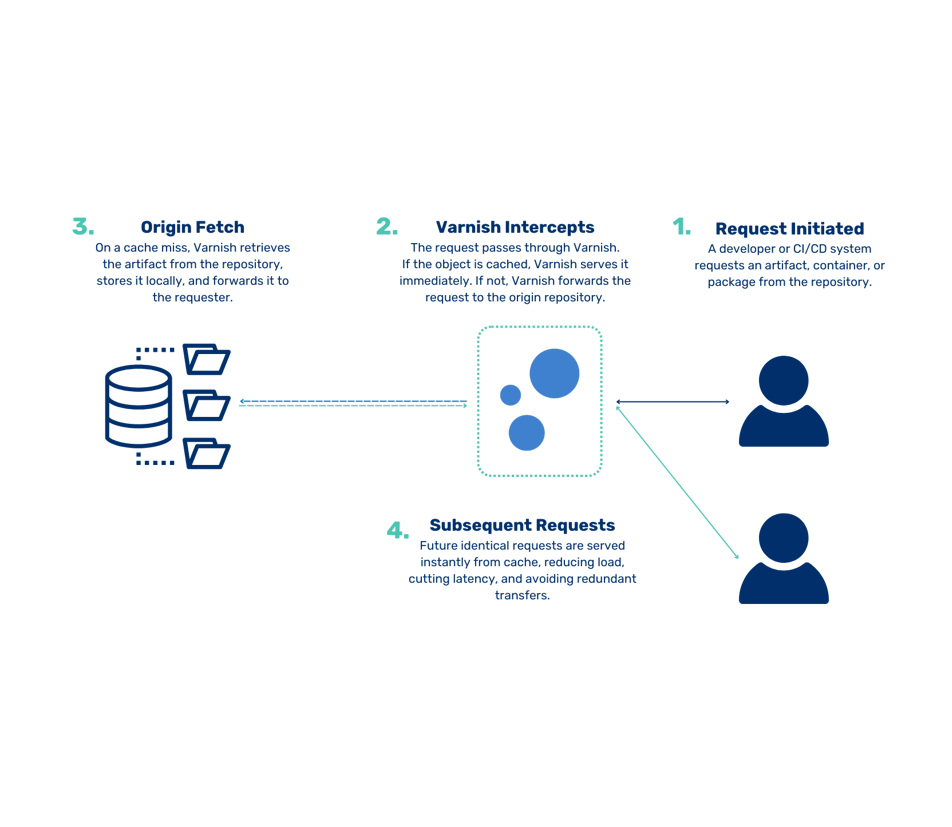
Enterprise-Grade Caching
Key Features for Software Distribution
Varnish is not just fast but secure, scalable, and suitable for enterprise environments with strict security and access policies.
| Access Control Integration Varnish respects access policies by integrating with access control systems. This allows secure delivery of cached artifacts without compromising authentication or authorization. |
|
| Massive Storage Engine (MSE) Efficient, disk-based caching architecture with configurable storage policies. Supports large-scale caching for containers, binaries, and package files. |
|
| Varnish Clustering Clustered deployment options for horizontal scaling and high availability. Share cached content across regions or data centers. |
|
| End-to-End TLS Encryption Secure delivery of artifacts and packages using full TLS support for client-to-cache and cache-to-origin connections. |
Use Case: Accelerating Delivery Across Self-Hosted and Cloud Artifactory Deployments
Artifact repositories like JFrog Artifactory are critical to CI/CD, but both self-hosted and cloud-hosted deployments introduce operational challenges.
Self-Hosted Artifactory Challenges
- Degrades under load
- Scaling requires hardware
- Centralized failure risk
Cloud-Hosted Artifactory Challenges
- Region-based latency
- Usage-based billing growth
- Infrastructure control limits
Varnish integrates with both self-hosted and cloud Artifactory environments to deliver a consistent, high-performance caching layer that:
- Caches artifacts close to users and pipelines
- Reduces origin fetches and cloud egress
- Improves delivery consistency and system resilience
- Works across on-prem, hybrid, and multi-cloud setups
Implementation and Deployment
Varnish can be deployed as:
- A local caching node in each region or data center
- A global cluster serving teams across multiple locations
- A containerized edge service in front of specific tools (Artifactory, Nexus, etc.)
The Varnish Artifact Cache is part of a fully programmable delivery layer, integrating caching, traffic routing, security, and observability into a unified architecture. It fits seamlessly into existing CI/CD pipelines and supports automation, monitoring, and scaling through standard tooling.
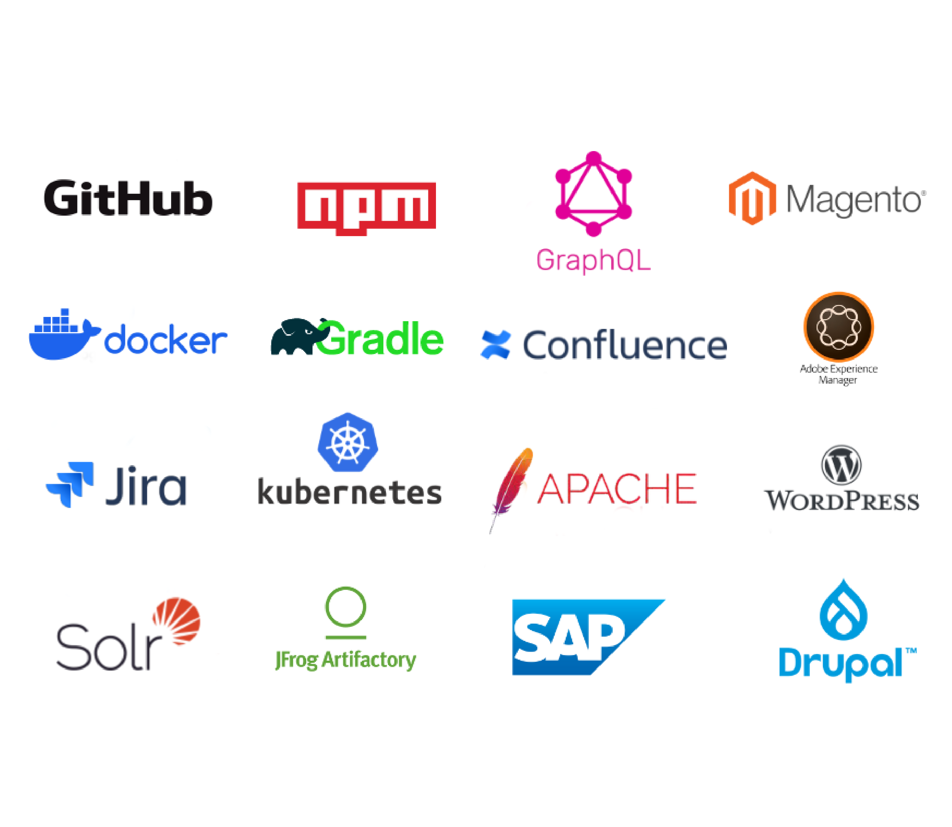
Proven Efficiency at Scale
Cut Infrastructure and Cloud Spend with Smarter Caching
Varnish Enterprise enhances performance and cuts costs by reducing load, bandwidth, and infrastructure complexity in software development.
Less Cloud Egress
Caching repeated requests reduces outbound traffic from cloud storage and repositories—cutting egress fees and easing network load in CI/CD pipelines.
Reduced Repository Load
Offloading redundant traffic from tools like Artifactory and Nexus maintains backend performance and delays costly scaling during peak demand.
Leaner Infrastructure
Serving requests closer to users and CI systems cuts reliance on central resources, improves latency in hybrid setups, and ensures stable performance.

Not All Caches Are Built for DevOps
Beyond Built-In Caching
Engineering teams often depend on built-in, open-source, or freemium caching, but these fall short at scale. Varnish delivers what others can't: consistent performance, architectural control, and resilience under pressure.
Local/Remote Build Caches (Bazel, Gradle, Maven)
Fragmented across teams, tool-specific, struggles with multi-terabyte datasets.
Built-in Repository Caching (Artifactory, Nexus)
Optimized for storage, not speed; high cloud egress costs; limited concurrency handling.
Open-source Reverse Proxies (Nginx, Squid)
Lack fine-grained invalidation, persistent storage, and native DevOps integration.
Memory Caches (Redis, Memcached)
Volatile, non-persistent; limited to internal acceleration, not full pipeline caching.

Why Varnish Works
Varnish Enterprise is built for large-scale, artifact-heavy environments. For platform engineers and build infrastructure teams, it solves key challenges:
Persistent, Policy-Driven Cache Layer
Varnish is a dedicated delivery layer—not a plugin or retrofitted proxy. You control what gets cached, when it refreshes, and how it scales.
Predictability Under Load
Varnish absorbs bursty traffic without overwhelming artifact servers, even when hundreds or thousands of jobs request the same binary.
Architectural Flexibility
Varnish runs close to runners, in edge zones, or alongside repositories—via containers, bare metal, or cloud. No forced topologies or vendor lock-in.
Result: Higher hit rates, fewer origin failures, and scalable infrastructure without overbuilding.

Solution Brief
The DevOps Challenge
Performance, Efficiency, and Cost Control at Petabyte Scale
With many enterprises now handling petabytes of traffic through their build pipelines each month, these challenges are not just technical inefficiencies; they are critical business risks that threaten profitability, agility, and innovation.
Our Solution Brief covers today's challenges with DevOps productivity and what leading organizations are implementing to address them.
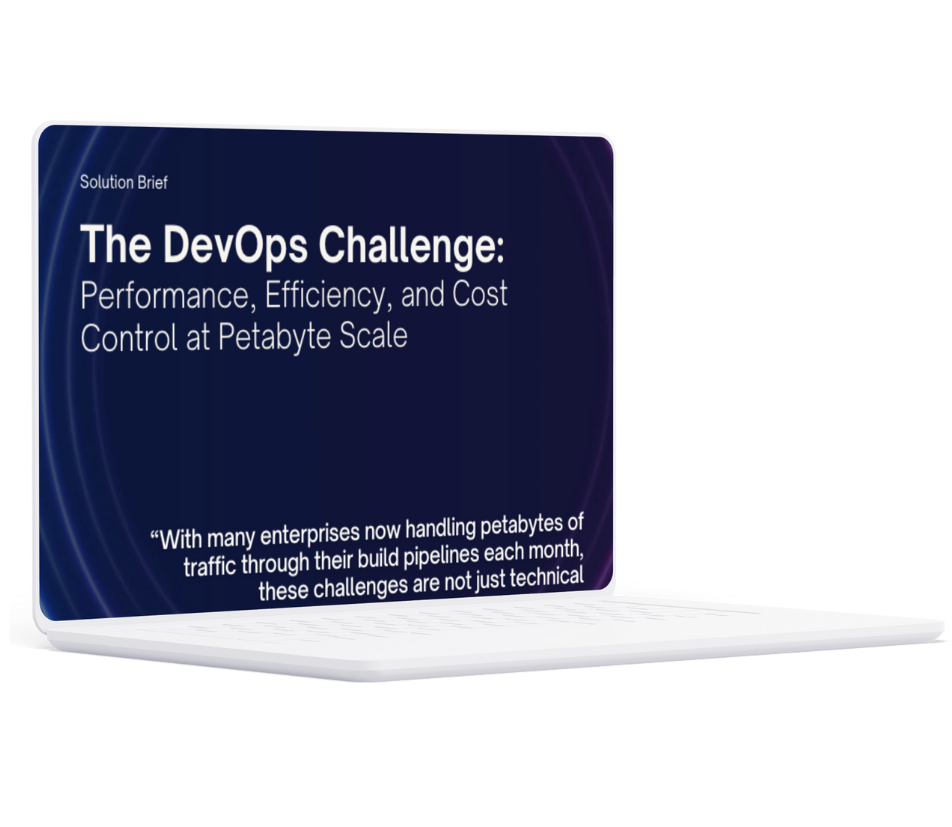
Connect with Our Team
We’re happy to help with any questions you may have about our software, support, pricing or anything else Varnish related. We can assist you in finding the solution that best fits your needs and set up trials too.

Get a Demo
- Get a free 30 day Varnish Enterprise trial.

Talk to an Expert
Talk with an advisor about the right solution for your needs


Message us
We have offices across the globe who can help answer any questions you may have.

